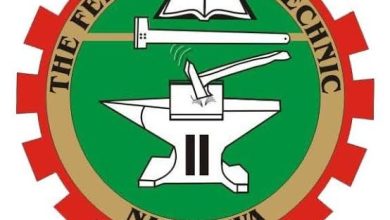Best Universities to Study Economics and Statistics Degrees in Nigeria
Nigeria has some of the top universities in Africa for economics and statistics. Whether you want to study economics, statistics, finance, or accounting, Nigeria’s higher education system has a lot to offer.
Best Universities to Study Economics and Statistics Degrees in Nigeria

Below are the best universities to study Economics and Statistics Degrees in Nigeria
Covenant University
A private Christian university, Covenant offers BSc, MSc and PhD degrees in economics and economics and development studies. Their programs focus on economic policy, international trade and finance. Covenant has a strong entrepreneurial spirit and encourages students to develop business ideas. They also promote community service, ethics and global citizenship.
Obafemi Awolowo University
OAU is a highly respected public university located in Ile-Ife. They offer undergraduate and postgraduate degrees in economics, including BSc, MSc and PhD programs. OAU has a long tradition of excellence in economics education and research. Their areas of focus include agricultural economics, public sector economics, petroleum economics and financial economics. OAU aims to produce graduates who can address the economic challenges facing Nigeria and Africa.
With a degree from any of these top schools, you’ll gain the knowledge and skills to pursue a successful career as an economist, economic policy analyst or in banking and finance. The future of Nigeria’s economy is in your hands.
The University of Lagos and University of Ibadan are two of the top schools in Nigeria for statistics degrees.
READ ALSO: Best Universities to Study Film and Video Studies in Nigeria
University of Lagos
The University of Lagos (UNILAG) is a major higher education institute located in Lagos, Nigeria. It offers both undergraduate and graduate programs in statistics, including:
- Bachelor of Science (BSc) in Statistics: A four-year degree covering topics like probability theory, statistical inference, and data analysis.
- Master of Science (MSc) in Statistics: A two-year graduate program focused on areas such as statistical computing, sampling techniques, and multivariate analysis.
- Doctor of Philosophy (PhD) in Statistics: For those interested in a career as a professor or researcher. Requires a master’s degree and involves advanced study and original research.
UNILAG has a highly-ranked Department of Statistics with experienced faculty and resources like computer labs, libraries, and statistical software. Graduates often find work as data analysts, researchers, and statisticians in fields like healthcare, education, and finance.
University of Ibadan
The University of Ibadan (UI) is the oldest degree-awarding institution in Nigeria, established in 1948. It provides the following statistics programs:
- BSc in Statistics: A three-year program covering probability theory, applied statistics, and statistical computing using software like SPSS and R.
- MSc in Statistics: A two-year program focused on areas such as survey methods, experimental design, and multivariate techniques. Requires a bachelor’s degree in statistics, mathematics or related field.
- PhD in Statistics: For those interested in working as professors, researchers or high-level statisticians and data scientists. Involves coursework and research leading to a doctoral dissertation.
Like UNILAG, UI has a reputable Department of Statistics with professors, facilities and resources to support statistics education. Graduates are employed across Nigeria and abroad in sectors ranging from government to finance and public health.
Choosing between UNILAG and UI ultimately comes down to factors like program offerings, cost, location and school culture. Either would provide a strong foundation in statistics to prepare you for a career as a data scientist, statistician or researcher.
Once you’ve earned your degree in economics or statistics, several promising career paths await you. Here are some of the top jobs for new grads:
As a business analyst, you’ll help companies make data-driven decisions. You’ll analyze sales numbers, consumer trends, and operational metrics to determine areas of improvement and growth. Many analysts work as consultants, while others are employed directly by large companies. According to PayScale, the average pay for a business analyst in Nigeria is ₦3.2 million per year.
Data scientists are highly sought after, with many tech companies scrambling to hire them. In this role, you’ll design and build predictive models to uncover insights from huge amounts of data. You’ll need strong skills in statistics, data mining, and programming. Data scientists are among the highest-paying jobs for econ and stats majors, with an average salary of ₦4.5 million per year in Nigeria.
Help companies understand their target markets better by becoming a market research analyst. You’ll design surveys and focus groups, analyze consumer opinions and behaviors, and determine the viability of new products or services. The job growth for this field is above average, and the typical salary in Nigeria is ₦2.8 million annually.
Actuaries use statistics and finance to analyze the financial costs of risk for insurance companies. You’ll determine insurance rates, create policies to minimize risk, and ensure companies have enough money to pay out claims. Actuaries are highly employable and well compensated, earning an average of ₦4.2 million per year in Nigeria. You’ll need to pass several professional exams to become an actuary.
If you want to stay in the academic world, consider becoming a professor of economics or statistics at a university. You’ll teach courses in your field of study, guide graduate students, and conduct your own research. Professors in Nigeria make an average salary of ₦3.5 million. You’ll typically need a master’s or Ph.D. in your subject area.
In summary, econ and stats majors can look forward to many promising and lucrative career paths after graduation. The key is finding work you genuinely enjoy that takes full advantage of your analytical and technical skills.
Applying to top economics and statistics programs in Nigeria can be competitive, so here are some tips to help strengthen your application:
Your personal statement is a chance to show your passion for the field and stand out from other applicants. Discuss experiences that sparked your interest in economics or statistics and how you hope to apply your degree. Mention professors you admire or want to work with. Keep your statement concise and specific to each school.
Internships, research opportunities and work experience in economics, finance, statistics or data analysis can demonstrate your abilities. Look for programs at target schools or local companies. Any experience is valuable, so also consider volunteering to help a professor with a research project or for a community organization.
Ask professors and employers who can speak to your skills and potential in the field to write letters of recommendation. Meet with them to discuss your goals and provide details on the programs you’re applying to. The strongest letters are tailored to each school.
Carefully review the application checklist for each program to ensure you submit all required scores, documents and fees on time. Take any necessary entrance exams well in advance. Late or incomplete applications are often rejected without review.
Apply to a mix of programs at different levels of competitiveness to maximize your chances of acceptance. Reach schools where your scores and grades are above the average admitted student. Target schools where you have a personal connection or your experience and interests align well with programs or research areas. Consider location, costs, scholarships and other factors in your decision.
READ ALSO Best Universities to Study Environmental Studies in Nigeria
FAQ
Many prospective students have questions about studying film and video in Nigeria. Below are some of the frequently asked questions and their answers:
What do economics and statistics degrees cover?
Economics degrees provide a broad understanding of how societies utilize their limited resources to satisfy unlimited wants and needs. You’ll study topics like supply and demand, economic growth, inflation, trade, and fiscal policy. Statistics degrees focus on collecting, analyzing, and interpreting data to solve problems and make informed decisions. Coursework includes probability, regression analysis, survey methodology, and data visualization.
What kinds of jobs can I get with these degrees?
With an economics degree, you can work as an economist, policy analyst, financial advisor, or auditor. Statisticians are in high demand, working as data scientists, market research analysts, actuaries, and more. Strong math and analytical skills developed in these programs open up many opportunities.
What are the top schools for economics and statistics in Nigeria?
Some of the best options include:
- University of Lagos
- University of Ibadan
- Obafemi Awolowo University
- University of Nigeria, Nsukka
- Covenant University
These schools offer undergraduate and graduate programs in economics, statistics, and related fields like finance, accounting, and mathematics. They have prestigious reputations, experienced faculty, and successful alumni.
How much do economics and statistics degrees cost in Nigeria?
Tuition and fees can range from ₦200,000 to over ₦700,000 per year at top schools, especially for graduate programs. Many schools offer scholarships and financial assistance for high-achieving students. The investment in your education can pay off with the skills and opportunities these degrees provide.
If you have any other questions about studying economics or statistics at universities in Nigeria, don’t hesitate to ask! There are many great options to launch your career.









